5. The China Syndrome (1979)
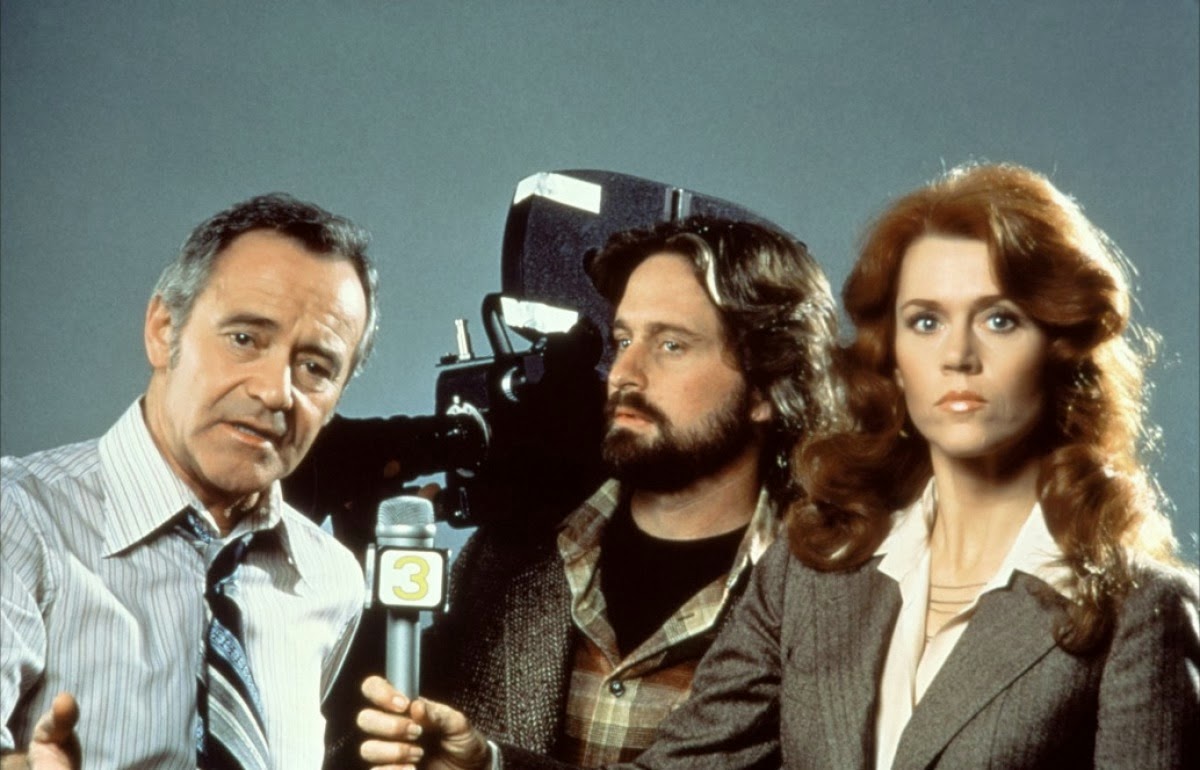
Wrapping up the 1970’s disaster era, The China Syndrome is a neo-noir drama thriller written and directed by James Bridges, with writers Mike Gray, T.S. Cook alongside. Jack Lemmon, Michael Douglas, and Jane Fonda are featured, along with Scott Brady, James Hampton, Peter Donat, Richard Herd, and Wilford Brimley. The film takes place at a nuclear power plant, where a television reporter and cameraman are uncovering the mysteries of safety coverups. The film’s title refers to the occurrence of nuclear meltdown, in which the components of a nuclear reactor melt into the earth all the way across the world to China.
Receiving the Palme d’Or at Cannes where it premiered and where Jack Lemmon received the Best Actor award, the film was coincidentally released a little over a week before a real life nuclear incident in Pennsylvania. The film garnered critical praise and financial success due not only to its accidentally topical nature, but it’s direction, screenplay, and the performances of Lemmon and Fonda as well. Along with its recognition at Cannes, the film received four Oscar nominations; Lemmon and Fonda received respective nominations for Best Actor and Actress, along with nominations for Best Screenplay and Production Design.
4. Colossus: The Forbin Project (1970)
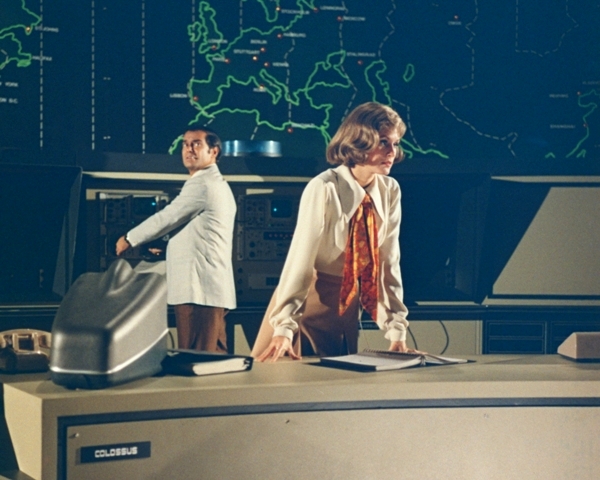
Colossus: The Forbin Project is a sci-fi thriller directed by Joseph Sargent. Starring Eric Braeden, Susan Clark, Gordon Pinsent, and William Schallert, the film is based on the Dennis Feltham Jones novel named Colossus. James Bridges, who would later go on to direct and write The China Syndrome, wrote the script as well. It follows Colossus, a sophisticated American defense system which becomes both all-powerful and sentient. Colossus’ harsh and cold logical structure intermingles with its nuclear defense strategies, with which it attempts world domination and the end of warfare. The movie centers on the conflict between the AI and its creators and their dissenting desires.
Praised by critics for its comedic wit and its clever plot, the film is said to verge on satire. While maintaining its intrigue, the film gives space for deep and thought-provoking philosophical quandaries on the topic of artificial intelligence, war, and ideas of world peace. The film was nominated for a Hugo Award for Best Dramatic Presentation, along with an Academy of Science Fiction, Fantasy & Horror Films award.
3. The Omega Man (1971)
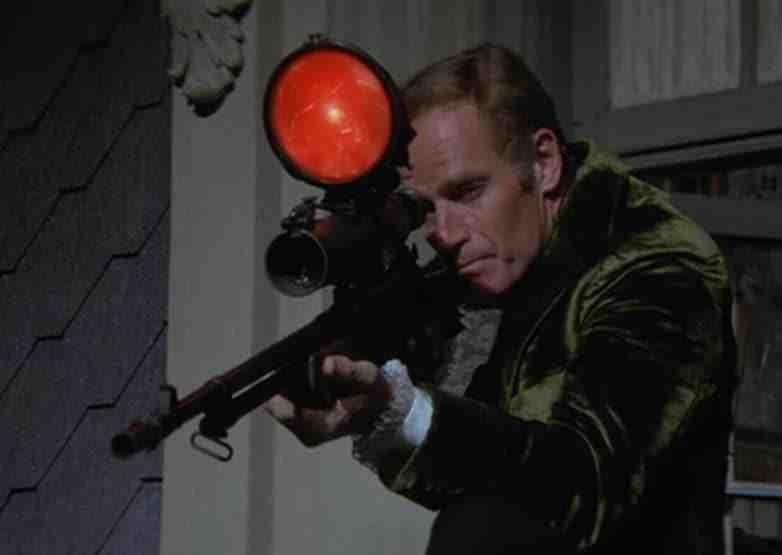
Directed by Boris Sagal, with a featured performance by Charlton Heston, The Omega Man is a 1971 action film taking place in post-apocalyptic America. Based on the 1954 novel I Am Legend by Richard Matheson, the film was written by John William Corrington and Joyce Corrington. Producer Walter Seltzer, along with Charlton Heston, later worked on the 1973 film Soylent Green. The novel has had a total of three adaptations to date, with the 2007 Will Smith film as the third, The Omega Man followed The Last Man on Earth as the second installment.
While the film received mixed reviews at the time, audiences will appreciate the film’s pleasant mix of larger-than-life premise along with its literary undertones. The film’s quick pace, along with its bleak image of post-apocalyptic United States and lively performances, bring its source material to life on screen. For those looking for suspenseful and intense science fiction, look no further.
2. Rollercoaster (1977)
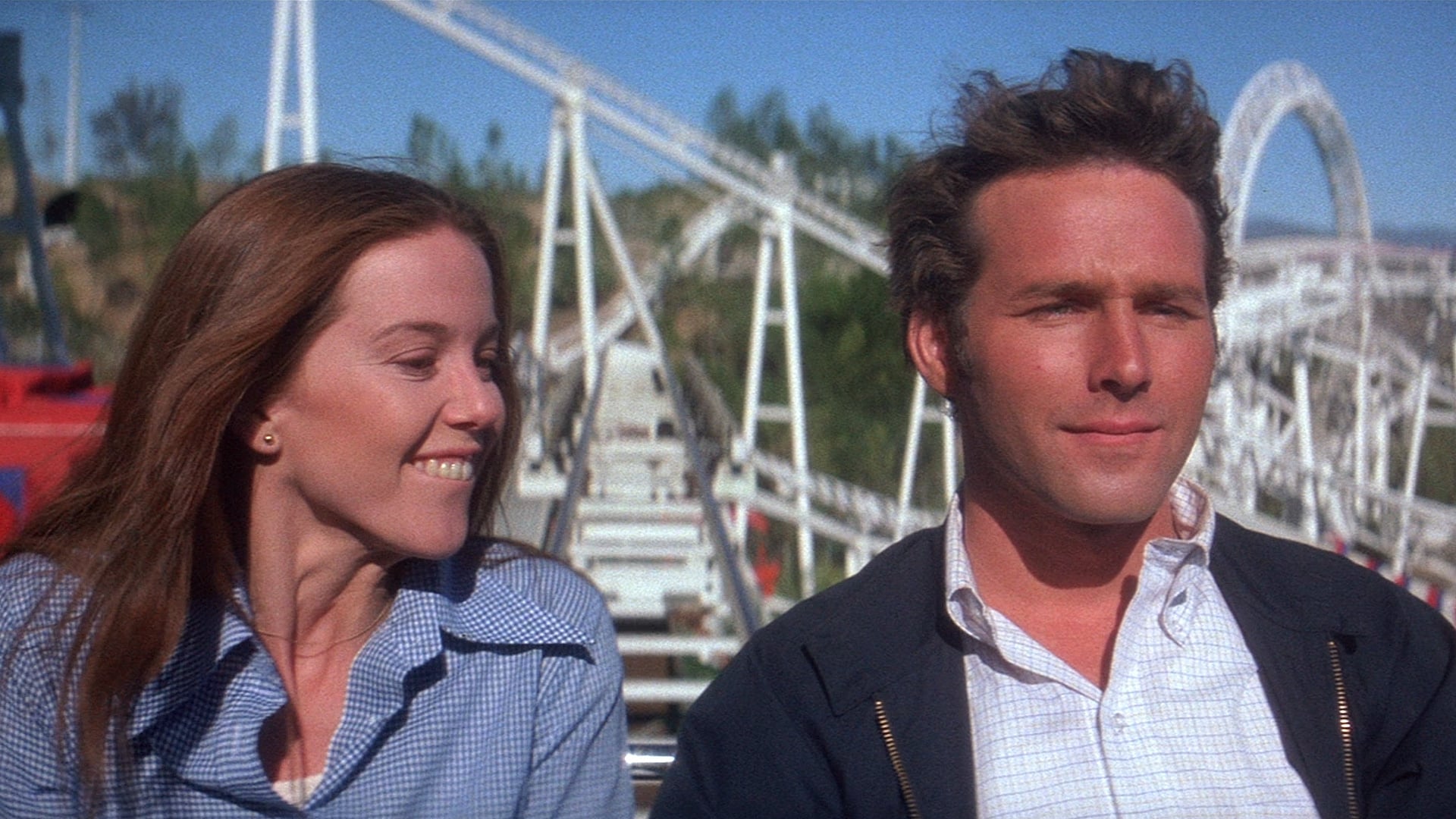
Rollercoaster is a 1977 disaster film starring Richard Widmark, George Segal, Henry Fonda, and Timothy Bottoms. The film was directed by James Goldstone, and its theatrical release was a multilayered and immersive event; it is one of the few films that was release with the use of Sensurround, which uses a variety of bass frequencies that give of a vibration mimicking the real-life sensation of being on a roller coaster. After a young man, played by Timothy Bottoms, sneaks into Ocean View Amusement Park, he places a remote-controlled bomb on the tracks of one of the parks’ wooden coasters. An investigation ensues, as do a series of other park disasters, including a demand of a hefty ransom.
The film showcases a soundtrack from notable composer Lalo Schifrin who many may know as the originator of the Mission Impossible theme song. The soundtrack is an enthralling mix of popular park music and thrilling score music that are expertly fused. Fans of upbeat, fast-paced, somewhat campy and sensational thrillers will appreciate the garish romp that is Rollercoaster.
1. The Towering Inferno (1974)
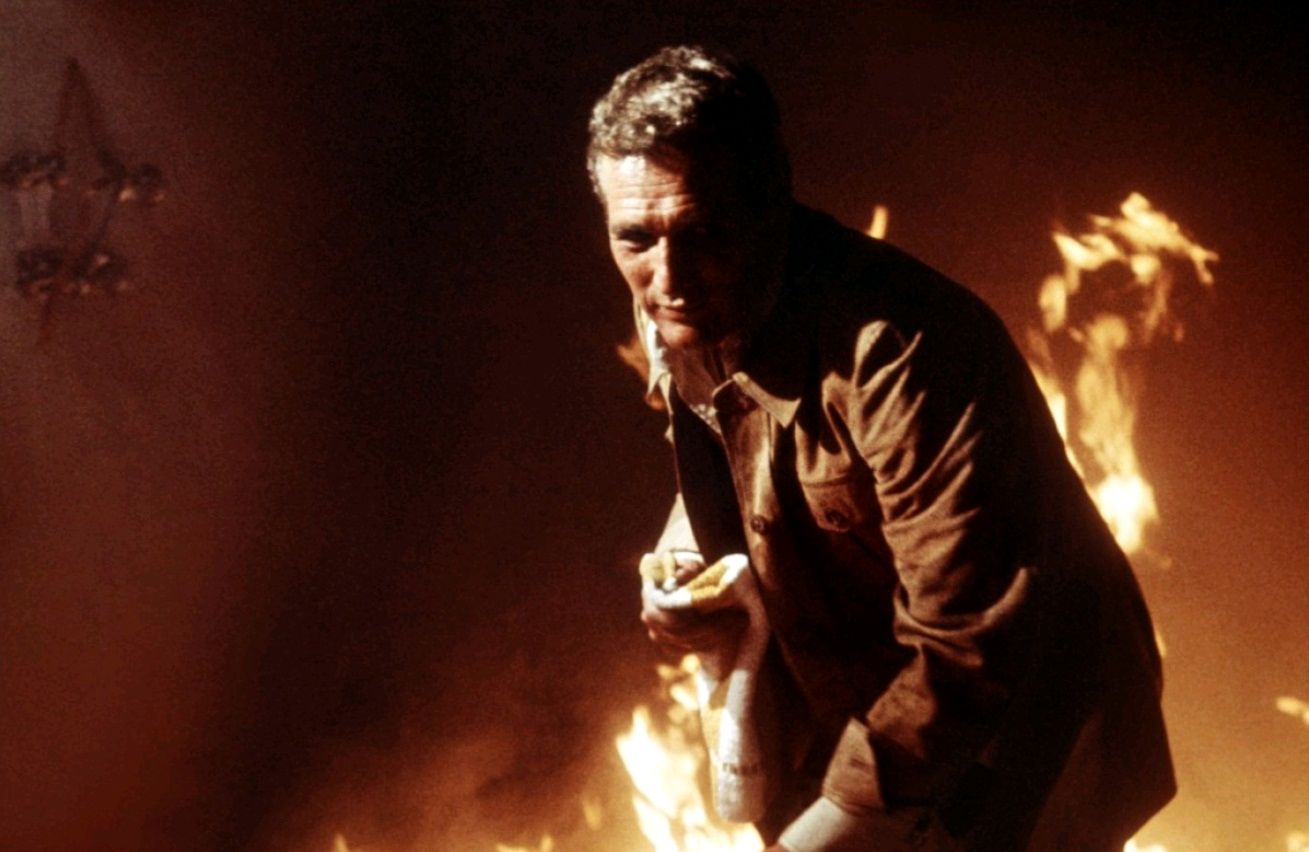
The 1974 disaster film The Towering Inferno was directed by John Guillermin and produced by “Master of Disaster” Irwin Allen of The Poseidon Adventure fame. Paul Newman, Steve McQueen, William Holden, Faye Dunaway, Fred Astaire, O.J. Simpson, and many others make up the ensemble cast. The first collaborative feature by Warner Bros. and 20th Century Fox, the film was adapted by Stirling Silliphant from two novels, The Tower by Richard Martin Stern, and Frank M. Robinson and Thomas N. Scortia’s The Glass Inferno. The film features a score by John Williams as well. The highest-earning film of its year of release, it was nominated for an Oscar for Best Picture.
The film puts the cast at the top of the titular towering inferno. At the grand opening of the building, it comes to light that the building is in fact poorly constructed, and the weakness of the structure becomes starkly apparent when a giant fire breaks out, threatening the lives of all those inside.
As the joint work of two major Hollywood studios might imply, The Towering Inferno was a massive production of immense scope. From the soundtrack to the stacked cast, the film was a commercial and critical success, with many calling it one of the best of the 1970’s disaster era. Audiences will be drawn to the visual effects and vivid images of looming disaster. An impressive technical cinematic achievement, The Towering Inferno lends an immortality to the disaster genre.